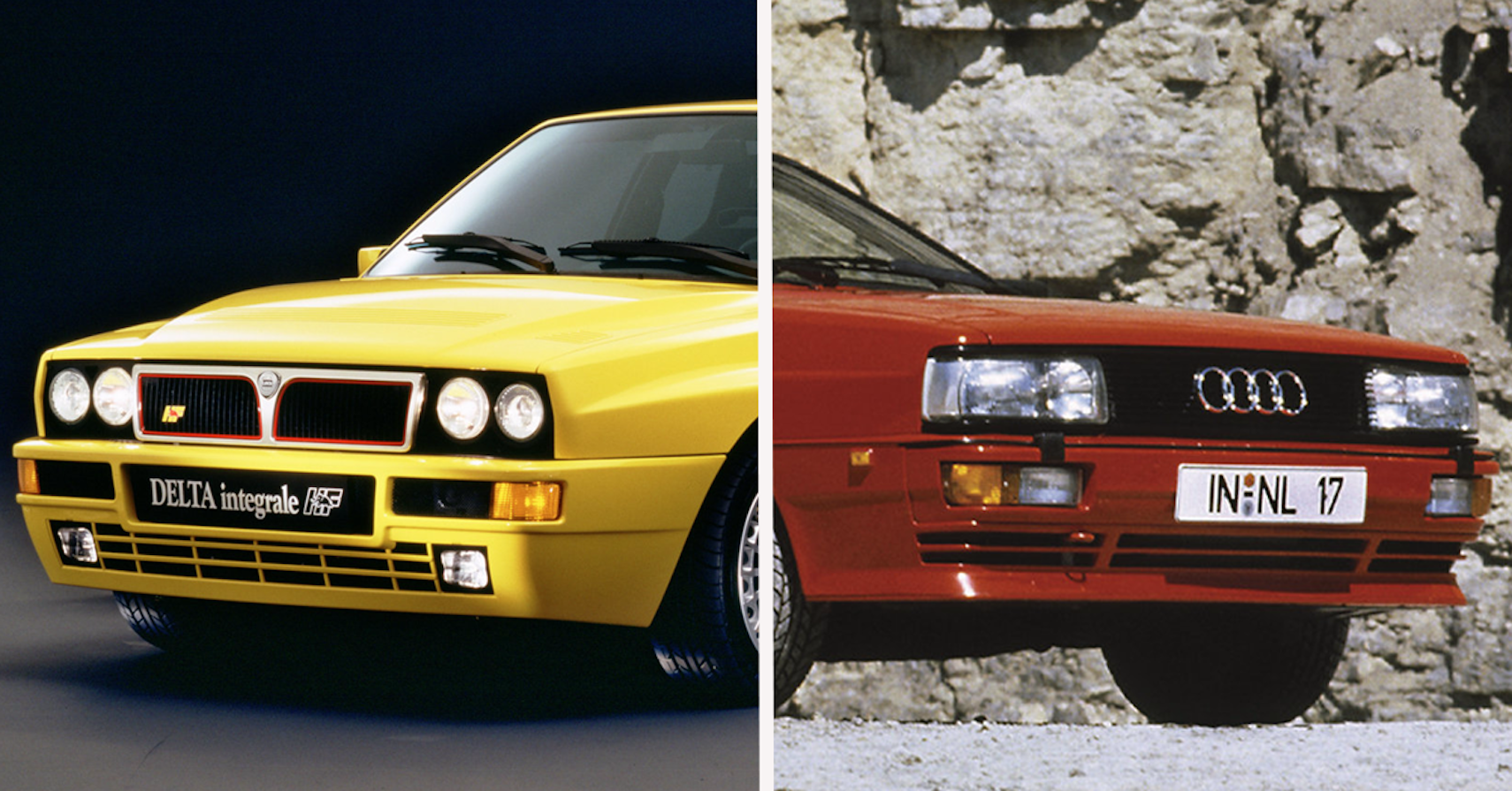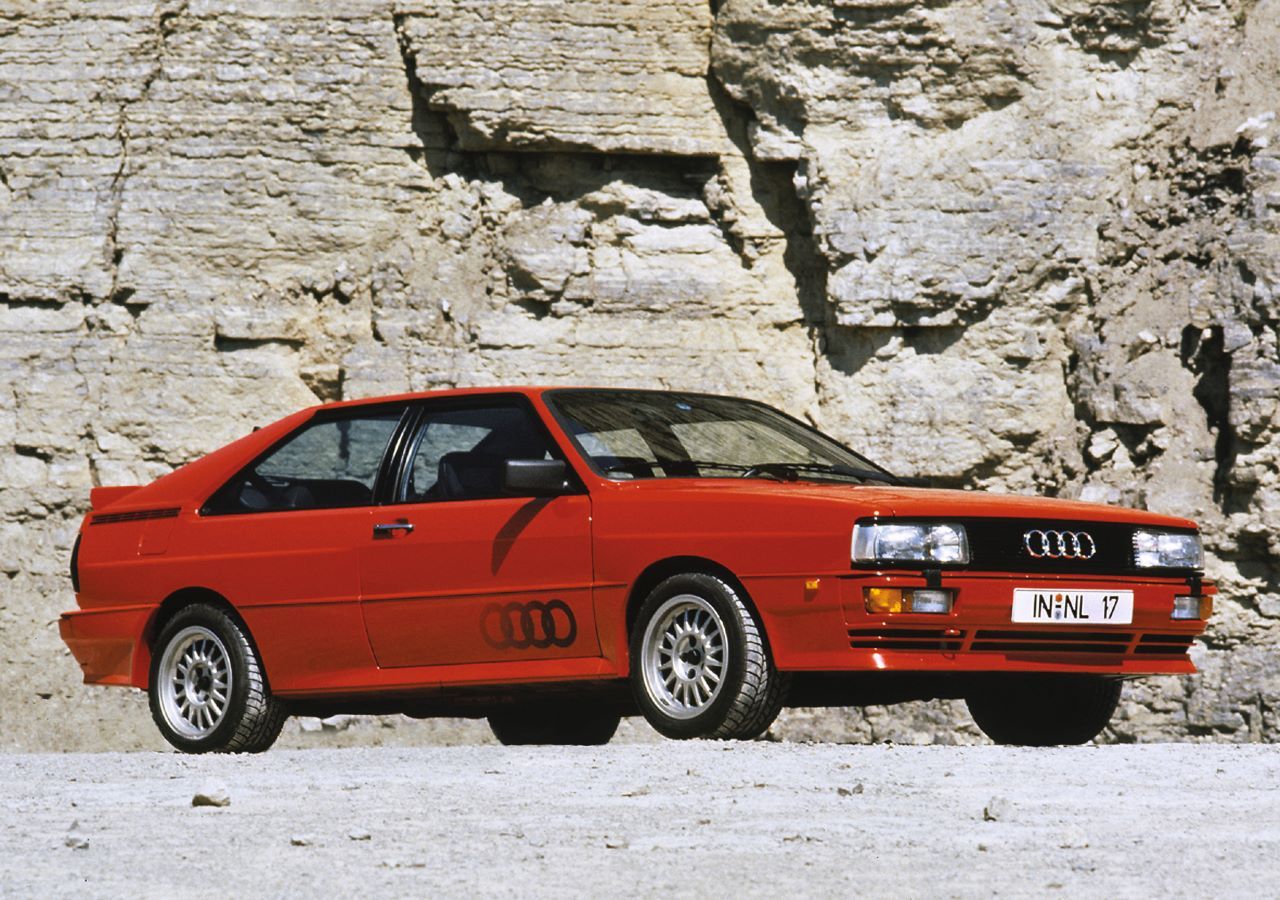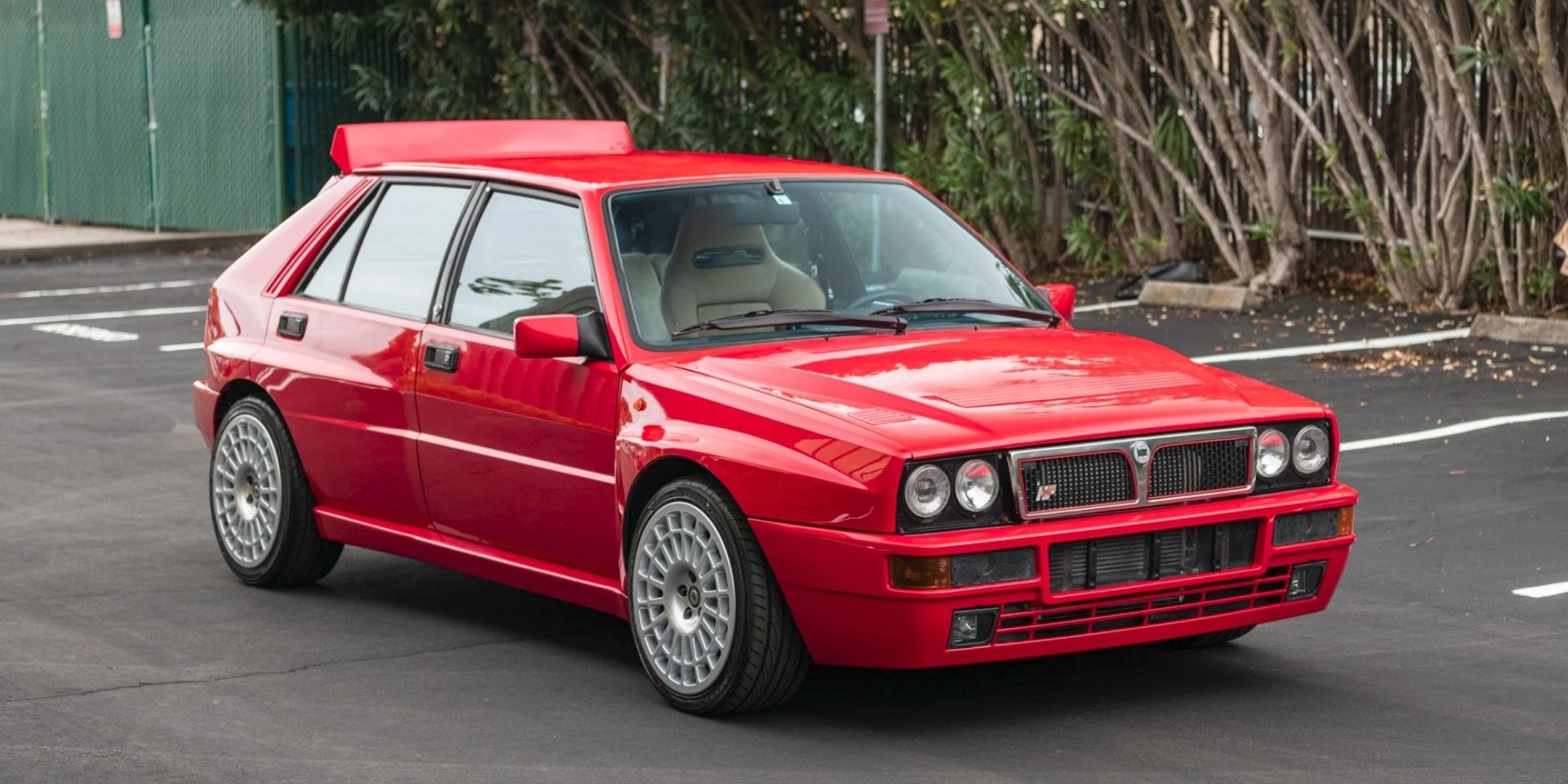Not many sports cars exist that can boast such a rich motorsport history as the Audi Quattro and the Lancia Delta HF Integrale. Indeed, these fire-breathing legends dominated the world rally scene at the time. What’s more, they encapsulate the excitement, thrills, and glamour of motorsport in the 1980s.
It was, no doubt, the Audi Quattro that revolutionized international rallying, thanks to its all-wheel drive system. Moreover, the Quattro offered speed, poise, and agility on the rally circuit that impressed. What’s more, the phenomenal turbocharged inline five-cylinder engine generated the most evocative soundtrack, unique to the Quattro, with whistles, pops and bangs adding to the theater. The Audi Quattro was the game changer. Indeed, the first Group B rally car to take advantage of the rule changes that permitted four-wheel drive in motorsport. As a result, this five-cylinder rally weapon produced numerous wins in the early years of rallying, annihilating its competition. Most of the wins took place in 1982 with seven victories in total, winning the World Rally Championship manufacturers title outright. Furthermore, the shorter wheelbase Audi Sport Quattro, introduced in 1984, secured a triple victory that year, winning both driver and manufacturer titles.
Although the Audi Quattro introduced four-wheel-drive to the world of rally sport in the early ’80s, Lancia went further with its four-wheel-drive Delta and raised the bar of the Group A world rallying scene. Lancia introduced its brilliant Delta HF 4WD just before the World Rally Championship restarted in 1987. Indeed, Lancia developed the modified Delta to satisfy motorsport regulations at the time. Moreover, it became one of the first hot hatches to use turbocharging and four-wheel-drive. This Italian rally monster claimed nine out of the thirteen World Championship races in its first year. Furthermore, it won six World Rally Championship Manufacturer titles in a row, compared to Audi’s two and three drivers’ championships, of which Audi won two. At the time, no other vehicle could come close to beating the Lancia Delta HF Integrale on the rally circuit. The Italian machine was undoubtedly the quickest rally car of its time. To this day, Lancia still holds the title for the most manufacturer WRC titles won consecutively.
These '80s icons are becoming sought after amongst collectors as values continue to escalate.
Comparing Audi Quattro Vs Lancia Delta Performance
The Rally heavyweights provided excellent all-weather performance and impeccable driver communication. However, there was little to separate between the two on the road. The Lancia HF Delta Integrale had the 8v, 2-liter fuel-injected four-cylinder engine mated with a five-speed transmission. What’s more, the Delta came equipped with 185 horses under the hood and 224 lb-ft of torque. As a result, the Integrale catapults from 0-60 mph in 6.6 and goes on to do 128 mph. However, the 16 valve Integrale adopted 12 horsepower more and could hit 60 mph in a mere 5.7 seconds. The Audi Quattro, in comparison, boasted similar performance figures to the Italian rally car.
Under the hood of the 10-valve ‘Ur-Quattro’ was a 2.1-liter, inline five-cylinder turbocharged engine paired with a five-speed transmission. What’s more, the Quattro produced 197 horsepower and 210 lb-ft of torque. The rally legend could sprint from 0-60 mph in 6.5 seconds and had a top speed of 140 mph. However, the later cars incorporated a 20-valve unit, which boosted power to 227 horsepower, making it faster to 60 mph in 5.9 seconds. As expected, the Quattro was slightly heavier at 1275 kg in comparison to the Lancia Delta, which weighed approximately 40 kg less.
How The Two Rally Cars Compare On The Road
The Integrale and Quattro are pure analog driving machines with blistering performance. Despite its size, the Quattro offered punchy performance and impeccable ground covering ability. Moreover, the phenomenal sound of the five-cylinder unit is mesmerizing, particularly when the turbo kicks in. It’s true to say the handling of the Integrale is less demanding than the Quattro. The Delta possesses a greater mid-range punch than the German rally legend, providing a surge of acceleration during boost. What’s more, it’s more agile with the power to accelerate out of corners quicker than the Quattro. Yes, both these cars have the old-school turbo lag, which adds to the drama and personality of these extraordinary machines.
The angular design of both cars remains attractive, even today. Though the Quattro may not be as sharp as the Integrale in appearance, the German rally car is certainly distinguishable. Indeed, the pronounced wheel arches gave both cars an aggressive stance. As expected, the interior is unmistakably 1980s, somewhat devoid of modern equipment. The dash and switches came drenched in hard plastic, though appear robust. Both the Quattro and Integrale provided good all-around visibility and decent seating position. However, Lancia Integrale drivers were always critical of its ergonomics, particularly the tilted steering wheel. Furthermore, the Italian hatch was only available in left-hand drive.
Quattro Vs Integrale: The Takeaway
Technically, there is no outright winner since both cars are superb. Yes, they have their individual strengths and weaknesses, however, on the tarmac, it’s difficult to separate the two. Indeed, they were both unbeatable on the world rally stage at the time and have become icons of the '80s motorsport culture. Although the legendary Quattro is easier to live with and offers the best compromise between reliability and affordability, the Lancia is arguably more rewarding to drive.
In terms of investment, both cars seem to be increasing in price each year. Indeed, the faster Integrale’s and Quattro’s command the higher price. A 1993 Audi ‘Ur-Quattro’ 10v sold at RM Sothebys early last year for $61,600. However, the Audi Quattro 20-valve version is, no doubt, deemed more desirable and usually commands a value over $75,000. According to Classic.com, the average price of a Lancia Delta HF Integrale 8v is around the $24,000 market in comparison to the Integrale 16v, which is $35,000. The Integrale Evoluzione versions are more desirable and sought and often exceed $50,000



